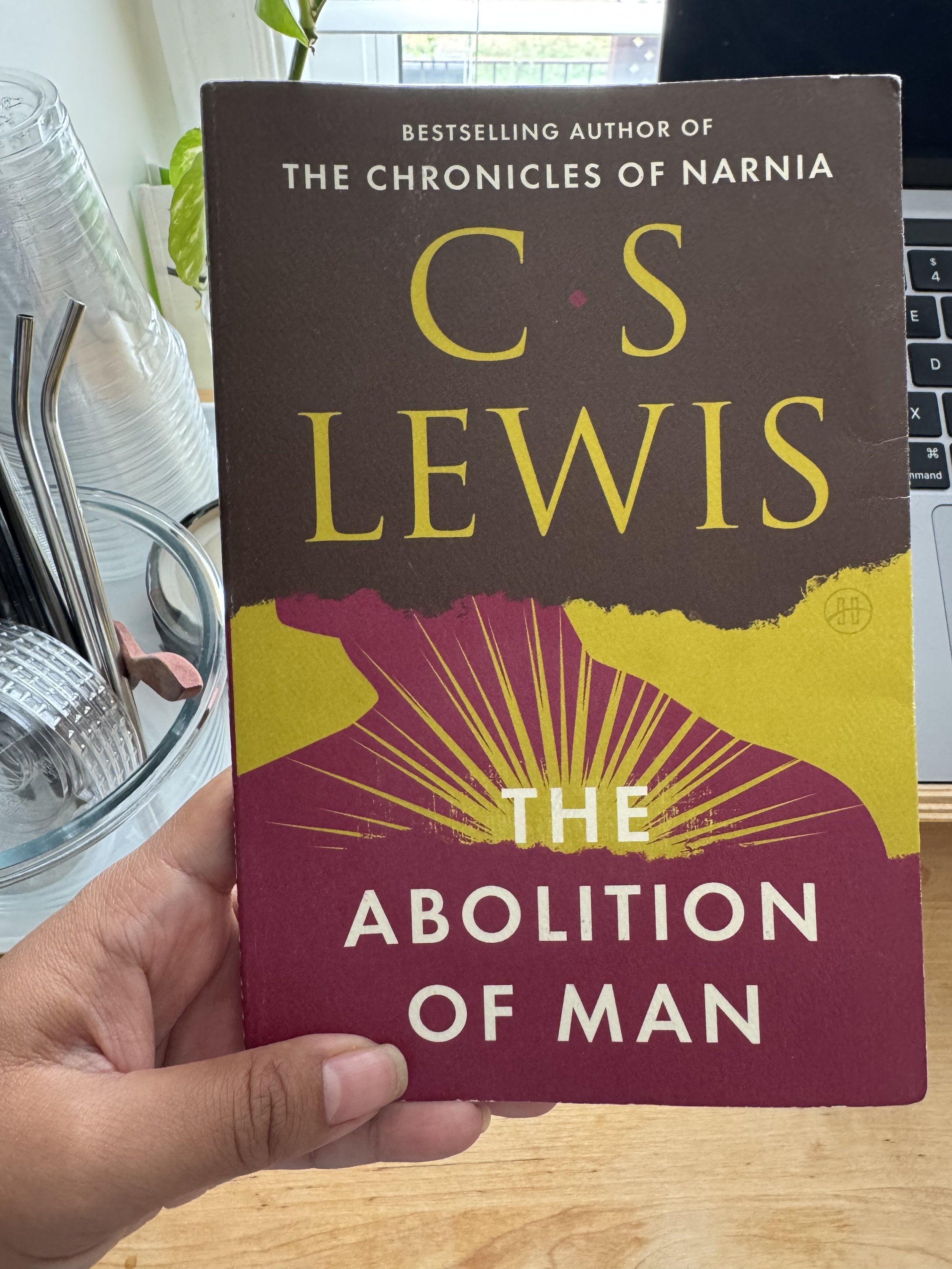Holistic Homeschooling: Lessons from C.S. Lewis for Today’s Parents
When it comes to our ‘why’ with homeschooling, my husband and I could share a number of reasons. Having finished reading C.S. Lewis’ The Abolition of Man, I have further thoughts and convictions to consider - not just as early childhood homeschoolers, but as parents. Are we raising well-educated kids or just really clever ones? While this won’t be a formal book review, but I invite you into the mind of this first-time homeschooler who aims to think critically and to dive deeper than our social media apps on all things parenting and homeschooling.
The Abolition of Man is C.S. Lewis’ reflection on education while serving as a peephole into a philosophical future where humans diminish the very qualities that make them human … in a non-fiction sort of way. Lewis argues that we are producing ‘men without chests.’ On pages 24-25, Lewis states,
“...Reason in man must rule the mere appetites by means of the ‘spirited element’. The head rules the belly through the chest - the seat, as Alanus tells us, of Magnanimity, of emotions organized by trained habit into stable sentiments. The Chest-Magnanimity-Sentiment - these are the indispensable liaison officers between cerebral man and visceral man. It may even be said that it is by this middle element that man is man: for by his intellect he is mere spirit and by his appetite mere animal.”
Ultimately, Lewis argues that modern education has removed the emphasis of universal values, producing people who are governed by their heads (rational thought) and their bellies (wants and instincts), without the formation of their chests (the filter between the head and the belly; the moral, virtuous, and emotional centre). And I think we are seeing many examples of that today: people who are driven by intellect and selfish desire. For our household, that is raising our children with faith.
Now, I don’t believe that a family must homeschool to achieve this - that’s just not practical and is not the reality for most households and we ourselves don’t think we’ll homeschool for their entire education. To me, the value of Lewis’ perspective is understanding that education ought to be regarded as holistic: forming the entirety of the person. And that clarified something I hadn’t been able to articulate: that math, literacy, science, and the arts are components of personal development; not the whole. As a home educator, this aligns my focus to help our children pursue intellectual excellence, but also to establish and develop moral values through which they can filter their rational thinking and their desires.
I think Lewis sums it up poignantly on page 61, “Whatever Tao [Lewis’ word to describe universal value or moral law that ought not to be dismantled or redefined] there is will be the product, not the motive of education.” In other words, I might consider our approach to home education as being one that is driven by values instead of hoping that an education would be the thing that forms good, holistic, adults.
This isn’t a personal critique on public or private education, but rather a provocation of how we decide to approach education at home. Homeschooling aside, as parents, we hope to achieve this by modeling good character and genuine love, training our children in habits and manners, reading the Bible and praying with them daily.
And with these thought-provoking sentiments, we are officially kicking off our 2025/2026 homeschool year. As we begin the school year, I’m reminded that education is not just about what our kids know, but about who they are becoming. While I am feeling challenged to consider our children’s holistic development, I am feeling equally empowered and equipped to do so!


